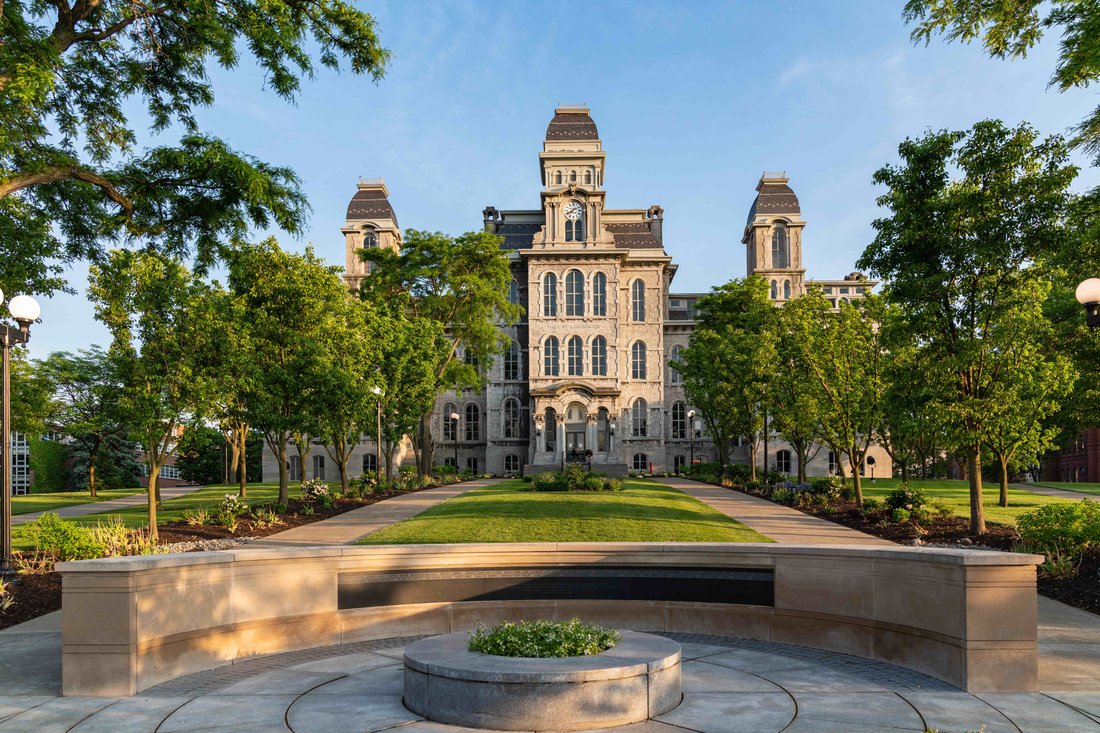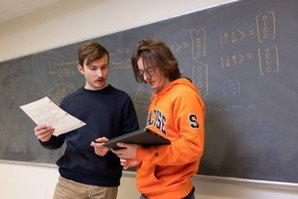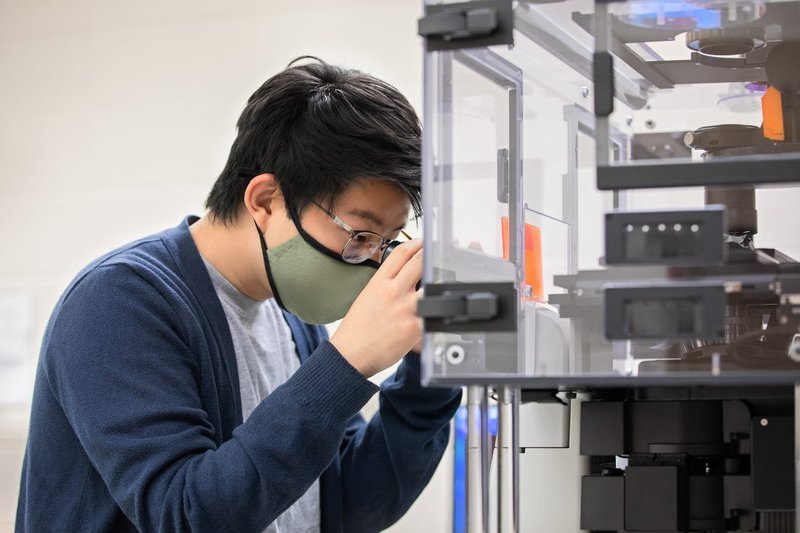
College of Arts and Sciences
Curriculum
The curriculum is structured to provide a deep understanding of the makeup of the world around us, including the universe at its largest (astronomical) scales and at its smallest scales (atoms and subnuclear particles), through coursework, computation and hands-on laboratory experiences.
- Explain phenomena occurring from subatomic to cosmological distance scales, using qualitative physical principles.
- Apply mathematics and logic to solve problems associated with natural phenomena.
- Assess and explain arguments for physical laws based on experimental and theoretical evidence.
- Employ basic laboratory and technical skills to solve physics problems as a result of formal laboratory coursework and research opportunities with faculty.
The physics department offers coursework leading to either a B.A. or a B.S. degree. The B.S. prepares you for graduate study in STEM and science and engineering careers requiring a deeper set of quantitative and problem-solving tools.
The B.A. degree program requires fewer credit hours in the major than the B.S. program. It provides a flexible and broad education in many topics in physics that prepare students for a diverse array of STEM or STEM-adjacent career options.
- Stellar and Interstellar Astrophysics
- Vibrations, Waves & Optics
- Introduction to Quantum Mechanics
- Biological and Medical Physics
- Thermodynamics and Statistical Mechanics
Extracurricular Opportunities
Physics Help Center and Study Lounge
The Physics Clinic is a help center and study lounge located in the Physics Building. It is staffed by teaching assistants and available throughout the academic year. Undergraduate students are encouraged to use the clinic for consultations on topics covered in physics and astronomy courses or as a community space to work on assignments together.

Syracuse University Society of Physics Students
Members of the Syracuse University Society of Physics Students chapter organize academic and social events, including group study sessions and review sessions for first-year physics courses. They also make several visits to local high schools to talk about the value and versatility of an undergraduate degree in physics. The organization is open to all students with an interest in physics, regardless of their major.
Physics Research
Many physics majors work in cutting-edge research labs, performing new experiments and applying theory in the areas of biophysics, gravitational waves, experimental particle physics, mechanical metamaterials, quantum information science and more.
Peer Coaching
Many physics majors help faculty teach courses as peer instructors, called coaches, giving students access to faculty, the opportunity to learn physics deeper through teaching it and the ability to build their resumes through real-world experiences.
Learn more about this program

